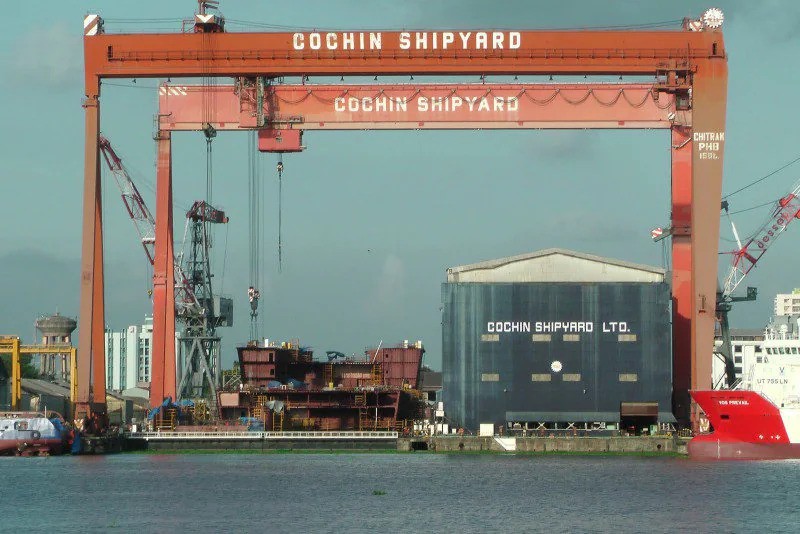Ports and shipyards are synonymous with each other and play an important role in the overall economic development of the country. With around 95 % of India’s merchandise trade by volume passing through sea ports, therefore Indian ports such as JNPT, Sikka Port, Hazira Port and Mundra Port have evolved into specialised centres of economic activities and are crucial for sustained future economic growth of the country. But Indian ports still have to address the infrastructural and operational challenges before they reach the international level. While there is no doubt that operational efficiency of Indian ports have improved during the last few years but it still lags behind the global average benchmark. For example, the turnaround time at major Indian ports was approximately 2.5 days a few years back, whereas global average benchmark is only 1-2 days. However, a few of the private sector ports in India like Mundra and Gangavaram have been able to achieve a turnaround time of around 2 days which is a marvellous achievement. Again the last mile connectivity to ports is one of the major constraints in the smooth movement of cargo. The transportation of Indian freight is predominantly used through road or rail for transportation of goods and there is significant share of time wasted during its transit to the ports due to capacity constraints on highways and railway lines connecting ports to manufacturing facilities. Although, other modes of transportation compared to water transport is much safer, cheaper and cleaner, it still accounts for a minuscule percentage. From a global perspective by comparison, coastal and inland water transportation contributes to 47% of China’s freight modal mix, while in Japan and US, this share is 34% and 13% respectively. There can be significant savings, if India can achieve the shift in movement of industrial commodities like coal, iron ore, cement and steel through coastal and inland waterways. From the shipyard sector perspective, ship building and ship repair business has also become a prime thrust area for the government, particularly Cochin Shipyards Ltd. The company has come of age post the commissioning of INS Vikrant having superior and technically advanced capabilities to manufacture high quality naval ships. It has large orders in the ship repair and ship building category and hence presents a huge opportunity for the company and the industry in general. The Indian Defence Acquisition Council has recently approved capital acquisition of indigenously developed military hardware and different weapon systems worth over Rs 70,000 crore to boost the domestic defence manufacturing capabilities in the country. All the above procurements are to be made under the Buy-Indian Indigenously Designed, Developed and Manufactured Category. With this approval, the total amount granted for capital acquisition of defence items during the financial year 2022-23 stands at Rs 2.71 lakh crore. Pertinent to note that around 98.9% is going to be sourced from India and Indian companies. The Ministry of Defence has signed a contract worth Rs 9,800 crore with Cochin Shipyards for the procurement of six Next Generation Missile Vessels for the Indian Navy. Earlier, the company had won an 8 anti-submarine warfare Corvettes contract also for the Indian Navy. With this the order backlog of Cochin Shipyard has swelled to over Rs 20,000 crores and hence provides healthy revenue visibility for the next couple of years. The company has a very strong balance sheet, free cash flows, zero debt and high return on capital ratios. The Cochin Shipyard stock is trading on the Indian bourses at Rs 487 and trades at around nine times its FY 24 estimated earnings presenting an opportunity for portfolio investors to see a tremendous appreciation in the stock price over the next 18 months’ time frame. The dividend yield is around 3.50 and the Cochin Shipyard stock is an attractive bet for long term investors.
Rajiv Kapoor is a share broker, certified mutual fund expert and MDRT insurance agent.

